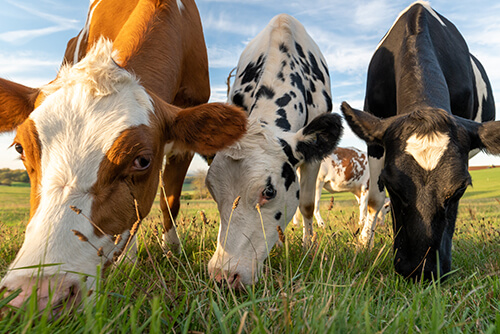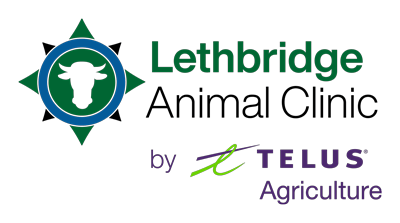Anthrax Disease in Cattle: Symptoms and Treatment
When it comes to taking care of big animals, knowing about different diseases they might face is important. Today, we’re going to talk about something called anthrax disease in cattle. It might sound scary, but our goal is to help you understand what it is, how to spot it, and what the next steps are if you think your cattle might be affected. If you’re worried or just want to learn more, the friendly team at Lethbridge Animal Clinic in Lethbridge, AB, is here to help. Just give us a call at (403) 327-4150. Let’s dive into the important details about anthrax disease in cattle and how you can work with your vet to keep your cattle safe and healthy.

Understanding Anthrax Disease in Cattle
Anthrax is a serious illness caused by a type of bacteria found in the soil. This bacteria can create spores that are very tough and can survive for years waiting for the right conditions to become active again. Cattle can get anthrax if they graze on soil where these spores exist. It’s a rare disease, but it’s important to know about because it can be very serious if not treated right away.
How Cattle Get Anthrax
Cattle mainly get anthrax by grazing on pastures where the spores are in the soil. These spores can enter the animal through small cuts in their mouth or nose or just by being inhaled or eaten while grazing. Once inside, the spores can become active bacteria and start to multiply, causing the disease.
Symptoms to Watch For
Keep an eye out for some key signs that might indicate your cattle are dealing with anthrax. These can include sudden fever, acting very tired or weak, having trouble breathing, or not wanting to eat. In some cases, animals might collapse and pass away very quickly. It’s a scary thought, but catching these signs early can make a big difference.
Treatment Options for Anthrax in Cattle
If you suspect your cattle might have anthrax, it’s super important to call your vet right away. This isn’t something to try and handle on your own. The vet can confirm if it’s anthrax and will start treatment immediately.
Vaccination as a Preventive Measure
One key step in protecting your cattle from anthrax is vaccination. Your vet can help set up a vaccination plan that’s right for your herd. This is especially important if you’re in an area known to have anthrax spores in the soil.
Antibiotics for Infected Cattle
For cattle that have been diagnosed with anthrax, antibiotics can be an effective treatment if started early. It’s crucial to follow your vet’s instructions carefully and make sure all the affected animals get the full course of treatment.
Keeping Your Herd Safe
Aside from treatment, there are steps you can take to lower the risk of your cattle getting anthrax. This includes managing grazing areas, being careful with how you handle any animals that might have died from the disease, and working closely with your vet to monitor your herd’s health.
Regular Check-Ups and Vaccination
Making sure your cattle get regular check-ups and stay up to date on vaccinations is key. This not only helps protect them from anthrax but from other diseases as well. Building a strong relationship with your vet means you’ll have a knowledgeable partner in keeping your herd healthy.
Managing Your Grazing Areas
If anthrax is known to be a risk in your area, talk to your vet about the best ways to manage your grazing areas. They might recommend rotating pastures or other strategies to reduce the risk of your cattle coming into contact with anthrax spores.
Contact Lethbridge Animal Clinic
This topic might seem overwhelming, but understanding anthrax disease in cattle is a big step towards protecting your herd. If you have any questions or concerns, or if you need to set up an appointment, please call Lethbridge Animal Clinic at (403) 327-4150. Our team is ready to support you and your cattle with knowledge, care, and the latest treatments. Remember, working together is the best way to keep your cattle safe and healthy.
